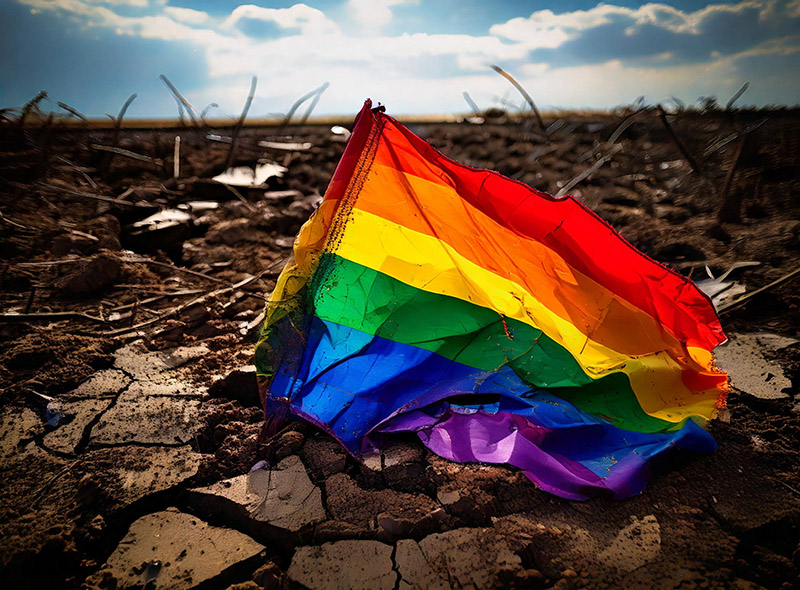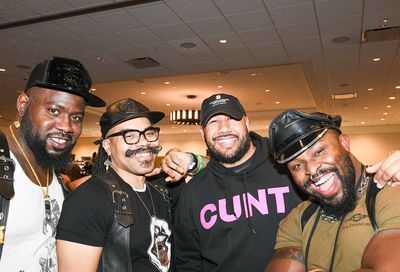DC Council passes hate crimes omnibus bill, bans gay and trans “panic” defenses
Bill expands types of crimes that can be prosecuted, and allows D.C.'s Attorney General to seek civil damages for hate crimes

On Tuesday, the D.C. Council unanimously approved a hate crimes omnibus bill that strengthens the District’s ability to protect residents from hate crimes, and bans the use of gay or trans “panic” defense as a justification for a perpetrator’s violent acts.
The bill is known as the “Bella Evangelista and Tony Hunter Panic Defense Prohibition and Hate Crimes Response Amendment Act of 2020.”
It contains several provisions that will better protect D.C. residents from hate or bias-motivated crimes, and ensure those who commit such crimes are brought to justice.
First, the bill bans the use of the so-called “panic” defense, a strategy in which the perpetrator of a violent crime contends that the sexual orientation or gender identity of a victim was a motivating factor.
By banning the “panic” defense, the District will now no longer allow defense lawyers to use a victim’s sexual orientation or gender identity alone as rationale for seeking a lighter sentence.
The bill is named after Bella Evangelista and Tony Hunter, two victims of violence whose assailants resorted to using their victim’s LGBTQ status to attempt to cast themselves as victims.
Evangelista was killed in 2003 by a former client who became angry and confronted her after discovering she was born male. That man, Antoine Jacobs, claimed he feared he would be assaulted by Evangelista, and shot her to protect himself.
Hunter was killed after being punched in the face and hitting his head on the pavement when he fell. The man who punched him, Robert Hannah, later claimed he hit Hunter in self-defense, alleging that Hunter had touched his crotch and butt in a sexually suggestive way.
The omnibus bill grants the D.C. Attorney General’s office to bring civil lawsuits seeking damages against organizations, corporations, or individuals who commit a hate crime against a District resident, with civil damages of up to $10,000 per act, along with other remedies.
The victim of a hate crime will still be allowed bring their own suit against a perpetrator if they so choose, but this way, the Attorney General’s office can seek damages on behalf of those who are victimized.
The bill also expands the list of properties in the District where it is illegal to display a symbol of hate or deface a property based on religious or secular uses, including by protected classes of people.
For example, incidents in which white nationalists destroyed property at several Black churches in D.C. during a pro-Trump rally could, under this new expanded definition, be considered hate crimes prosecutable under District of Columbia law.
It now heads to the desk of Mayor Muriel Bowser (D), who is expected to sign the bill into law.
See also: Italian lawmakers approve bill making anti-LGBTQ violence a hate crime
Councilmember Charles Allen (D-Ward 6), the chair of the Committee on the Judiciary and Public Safety, who cosponsored and shepherded the bill through the cumbersome legislative process, praised the measure’s passage.
“A panic defense is inexcusable in 2020, just as are the acts of hate we saw when white supremacists defaced historic Black churches recently,” Allen said in a statement. “This bill ends the first practice and creates new tools to stop the second. I am grateful to have worked with my colleagues on the Council, Attorney General Racine, and the Mayor on bringing forward a comprehensive and strong bill and look forward to it becoming law soon.”
The Advisory Neighborhood Commission Rainbow Caucus, a collection of LGBTQ people elected as ANC Commissioners, which has been advocating for the bill for more than a year, issued its own statement.
“The ANC Rainbow Caucus is both pleased and gratified that the Council of the District of Columbia has unanimously passed the Bella Evangelista and Tony Hunter Panic Defense Prohibition and Hate Crimes Response Amendment Act of 2020. It is heartening that this necessary legislation also includes provisions strengthening protections and legal recourse against other hate crimes,” Japer Bowles, the ANC Rainbow Caucus Chair, said in a statement on behalf of the caucus.
“The horrific events of the past weekend — including the defiling of our beloved historic Houses of Worship — provide another reminder that we must all stand united against hate and must use the full force of the law to prosecute all hate crimes,” the statement continued. “We must remain united against hate, and must continue to stand as one to defend and affirm the life, the safety, and the dignity of every citizen of the District of Columbia. This battle is not over. We thank the Council for their action today, as we all reaffirm our vow that hate has no place in the District of Columbia.”
Read more:
President-elect Biden will pick Pete Buttigieg for transportation secretary
Bhutan lawmakers vote to roll back part of anti-gay sodomy law
Catholic archbishop of Mexico City expresses support for same-sex civil unions
Support Metro Weekly’s Journalism
These are challenging times for news organizations. And yet it’s crucial we stay active and provide vital resources and information to both our local readers and the world. So won’t you please take a moment and consider supporting Metro Weekly with a membership? For as little as $5 a month, you can help ensure Metro Weekly magazine and MetroWeekly.com remain free, viable resources as we provide the best, most diverse, culturally-resonant LGBTQ coverage in both the D.C. region and around the world. Memberships come with exclusive perks and discounts, your own personal digital delivery of each week’s magazine (and an archive), access to our Member's Lounge when it launches this fall, and exclusive members-only items like Metro Weekly Membership Mugs and Tote Bags! Check out all our membership levels here and please join us today!


























You must be logged in to post a comment.